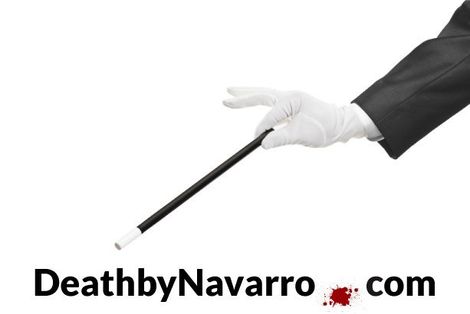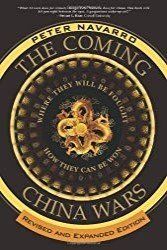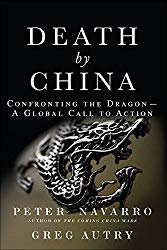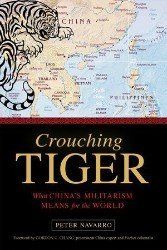Navarro the Adviser
Get to know the man and his ideology that has framed the Trump administration.
The Moment of Truth
Watch the moment that reveals the true colours of Navarro - despite his "sorry, not sorry"
Background

1 June 2018: US tariff on steel and aluminium
The United States imposed a 25% tariff on imports of steel, and a 10% tariff on aluminium, on the European Union, Canada, and Mexico.
8-9 June 2018: G7 Summit in Quebec, Canada
Canada, which holds the G7 presidency this year, hosted the leaders of the US, Italy, France, Germany, the UK and Japan in the town of La Malbaie. Trump left the summit early in order to travel to Singapore for the US' first summit with North Korean leader Kim Jong-un.
At a press conference after the summit - Trump by then was in the air, Trudeau spoke in mostly favourable terms about Trump but said that Canadians “will not be pushed around” and added that the Trump administration's national security justification for imposing tariffs on steel and aluminium imported from Canada is “kind of insulting.”
On Sunday 10 June, Navarro told Fox News:
“There's a special place in hell for any foreign leader that engages in bad-faith diplomacy with President Donald J. Trump and then tries to stab him in the back on the way out the door.
And that’s what bad-faith Justin Trudeau did with that stunt press conference. That's what weak, dishonest Justin Trudeau did. And that comes right from Air Force One.
Responses from the Canadian government and from others
Canadian Foreign Minister Chrystia Freeland said on Sunday
"Canada is very clear. We are very measured. We used fact-based arguments."
She said of the US tariffs, "The national security pretext is absurd and frankly insulting to Canadians, the closest and strongest ally the United States has had. We can't pose a security threat to the United States, and I know that Americans understand that. So, that is where the insult lies."
European Council President Donald Tusk tweeted later Sunday
"There is a special place in heaven for @JustinTrudeau. Canada, thank you for the perfect organisation of G7!"
Former U.S. Ambassador to Canada Bruce Heyman said Navarro’s words were “unconscionable.”
“Anybody who represents the United States of America from the White House using that kind of language with any world leader of any type, I think is uncalled for."
Nicholas Burns, a former long-serving diplomat who now teaches at Harvard University tweeted:
““This is astonishingly rude and uncivil.
"A savage personal attack on the leader of our closest ally. Navarro would have been fired in any other administration for this. He should resign in disgrace.”
The Rebirth of Navarro
Who is Peter Navarro? Trump's "nutty economics professor" and "attack dog on trade"
STEP 1:From Economics Professor to "China Expert"
Peter Navarro has had very good education, collecting three private-school degrees—including both a Master's of Public Administration and a PhD in Economics from Harvard—followed by teaching gigs at the University of California at San Diego and the University of San Diego. In 1989, at 40 years old, Navarro landed at the business school at Irvine.
Although his official resume makes no mention of his forays into politics in California, it is these, rather than his quiet, tenured life as an economics professor in public utilities and rent control, that more accurately reveal his character we see today, as Politico.com
describes below:
In the middle of a longshot bid to become the mayor of San Diego in 1992, Peter Navarro stripped down to his Speedo, dove into the Pacific and swam nearly a mile to a waterfront restaurant where he emerged, soaked and shivering, to face his rival for a head-to-head debate.
But in the final days of the San Diego mayoral race between Navarro and county supervisor Susan Golding, Navarro decided to release a nasty, personal attack ad that faulted his opponent for her husband’s wrongdoings: money laundering that had landed him in jail. The commercial, which featured Golding’s ex-husband behind bars and was played seemingly on repeat leading up to Election Day, ultimately turned voters against him and toward Golding.
His approval numbers later dipped even lower when his attacks moved Golding to tears in their final televised debate just days before the election. His campaign manager later recalled, "It was his race to lose, and he did, because he’s such a nasty guy."
Altogether, Navarro had run for office five times and lost five times, but had developed a reputation for being "nasty" in his use of smear tactics. “I still have some principles,” Navarro wrote in San Diego Confidential in 1998. “But not as many as you might think because I don’t have any concern at all about making stuff up about my opponent that isn’t exactly true.” He also morphed from registered Republican, to Independent, to Democrat, and back to Republican - whatever it took to give him an edge.
And he found his edge in 2007 with the publication of his first book on China, The Coming China Wars - at a time when most Americans were looking at the growing relationship between the United States and China as a positive development. He has since published two further books on China (accompanied by film documentaries of the same names), Death by China
in 2011 and Crouching Tiger
in 2015.
Although Navarro has gained a lot of publicity from his provocative books and documentaries on China, even those most likely to have had a chance to meet him, who has taught at the University of California, Irvine for years said he made no effort to connect with China experts, whether economists, political scientists, or historians. "My recollection is that he generally avoided people who actually knew something about the country," said Kenneth Pomeranz, a professor of Chinese history at the University of Chicago and formerly at UC Irvine.
No wonder Foreign Policy
has described Navarro as a "gate-crasher" to the real China experts.
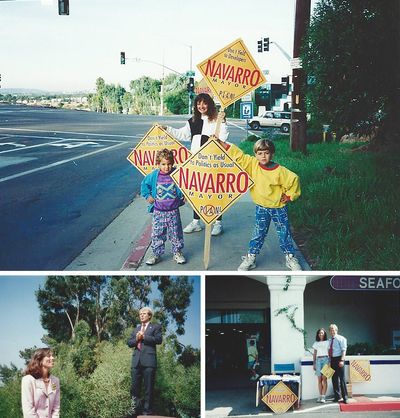
Take Navarro’s discussion on China’s “damnable” dam building in The Coming China Wars
(pp. 129-142) as an example. To prove that the Three Gorges Dam is a bad project, he quotes the information on the Banqiao Dam found at Wikipedia: the Banqiao Dam was built in the early 1950's, and crested and collapsed when Typhoon Nina hit in 1975.
Then, he warns that if the Mekong River, which flows through countries including China and Vietnam, were truly to dry up because of China’s dam building, conflict between China and Vietnam would become “inevitable”.
STEP 2:From "China Expert" to Trade Adviser
According to Vanity Fair, at one point during the campaign, when Trump wanted to speak more substantively about China, he gave Kushner a summary of his views and then asked him to do some research. Kushner simply went on Amazon, where he was struck by the title of one book, Death by China, co-authored by Peter Navarro. He cold-called Navarro, a well-known trade-deficit hawk, who agreed to join the team as an economic adviser.
In December 2016, before taking office, Trump created the new office of the White House National Trade Council and appointed Navarro as its director. The creation of the office suggested the new body would have a position on par with the powerful National Security Council and National Economic Council.
But in April, Navarro’s National Trade Council was eliminated, and he was renamed head of the Office of Trade and Manufacturing Policy. In September, that office was moved into the National Economic Council and placed under the purview of its director, Gary D. Cohn, a former Goldman Sachs investor whose more conventional views on trade have contrasted sharply with those of Navarro.
Despite being thwarted by Gary Cohn and other more traditional thinkers in the White House during the first year of the Trump administration, aspects of Navarro’s philosophy still surfaced. It was Navarro who pushed Trump to threaten to pull out of Nafta and to use tariffs to force a renegotiation with Canada and Mexico; and it was Navarro who shaped Trump’s warning on German trade surpluses.
But with Cohn's resignation in March 2018 over Trump’s plan to levy tariffs on steel and aluminium, Navarro, who had been called "a liar" to his face by Cohn, has emerged as the one big winner. He has publicly backed Trump’s proposed steel and aluminium tariffs in a series of media appearances, culminating in telling Fox News on 10 June that "there's a special place in hell" for Justin Trudeau, the Prime Minister of Canada.
It is clear that Navarro is goading Trump into more aggressive action; his economic views have been dismissed by most economists as “fringe” and “oddball” but Trump has hailed him as a “visionary”. On Navarro's part, he cannot help but heap praise on his boss and describes his own role as that of an enabler, according to Bloomberg
on 8 March, 2018:
"This is the president's vision. My function, really, as an economist is to try to provide the underlying analysis that confirm his intuition. And his intuition is always right in these matters."
Navarro is a man with a mission to "reconstruct our trade arrangements around the world."
Michael Wolff, Fire and Fury: Inside the Trump White House, p. 133
BUT his "reconstruction" is a "Great Leap Backward" in economic terms and becomes, in practice, destructive, America-initiated trade wars, which, as recognised by conscientious economic experts, are putting global economic growth in jeopardy.
FOX NEWS
Chris Wallace heated interview with Trump’s trade czar on tariffs
CNN MONEY
Whirlpool loved Trumps tariffs. Now it's struggling.
FOX BUSINESS
US-China trade war already hurting US auto industry: John Bozzella
